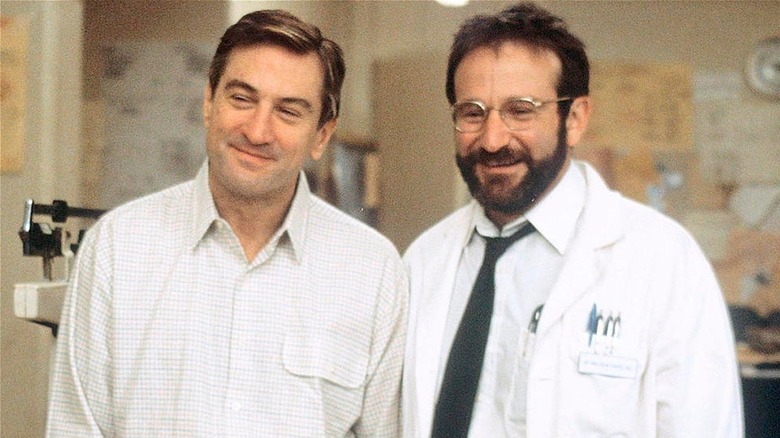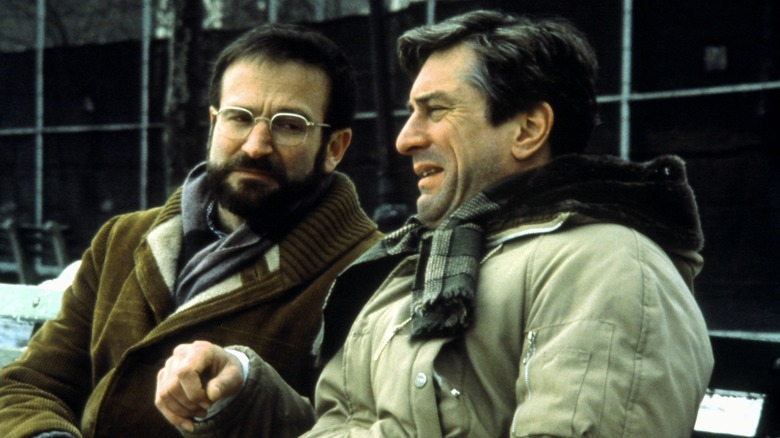Awakenings: The True Story Behind The Robert De Niro & Robin Williams Movie
Robert De Niro and Robin Williams were mega-stars when "A League of Our Own" director Penny Marshall and Columbia Pictures brought them together for the 1990 medical drama "Awakenings." De Niro earned one of the film's three Oscar nominations as best actor that year, with the other two coming for best picture and best adapted screenplay. The film tells the story of Dr. Malcolm Sayer (Williams), who uses a drug used to treat Parkinson's disease, called levodopa (L-dopa), to bring patients out of catatonia.
The story is based on a program — developed by neurologist Dr. Oliver Sacks in the late '60s at Beth Abraham Hospital in the Bronx (now Beth Abraham Center) — to treat people who had been in various states of awareness since contracting encephalitis lethargica, also known as "the sleeping sickness," just after World War I. Sacks detailed his findings in a 1973 book, "Awakenings," which was turned into the Oscar-nominated screenplay by Steven Zaillian. Sacks earned a co-writing credit for the film.
Most of Sacks' 80 patients had steadily deteriorated over the decades from lack of activity and stimulation. Sacks suspected that the newly developed L-dopa worked on the same receptors that were affecting his encephalitis lethargica patients, but was cautious about trying the experimental treatment on older adults. He told ABC News in 2009, "I hesitated for two years. They'd been put away for 40 years, and I didn't know what coming back to a world that was not their own might mean to them. And finally, my hand was forced, because so many of the patients were terribly disabled ... some of them were dying."
The effects of L-dopa wore off quickly
The broad points of "Awakenings" are largely faithful to real-life events, although director Penny Marshall took the requisite amount of artistic license in telling the story of Dr. Oliver Sacks and his patients. One important similarity between real events and the film is that the benefits of the breakthrough L-dopa treatment were short-lived. Many patients had dramatic and complete awakenings, only to slip back into catatonia shortly thereafter. Although L-dopa didn't prove to be a permanent solution for Sacks' patients, it is still used (via the National Library of Medicine) to treat people with Parkinson's disease decades later.
Williams worked closely with Sacks while preparing for the film, and the two men became close friends. The actor's study of his subject lent an authenticity to the film, even if the events portrayed didn't happen exactly as they are shown. But Williams was able to bring Sacks' manic focus on his patients and research to life.
Sadly, many of the major players behind "Awakenings" are no longer alive. Robin Williams left audiences with a disappointing final performance as the voice of Dennis the Dog in "Absolutely Anything" before dying of suicide in 2014. Sacks died of cancer in 2015 at the age of 82, and Marshall died in 2023 from complications of diabetes. Robert De Niro is thankfully still working in his 80s, while the film's third lead, Julie Kavner, starred on "Rhoda" before going on to voice Marge Simpson for over four decades.
If you or someone you know is struggling or in crisis, help is available. Call or text 988 or chat 988lifeline.org

